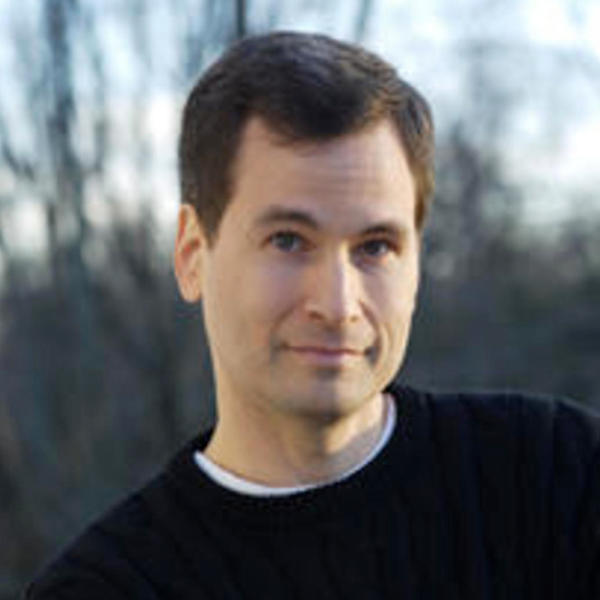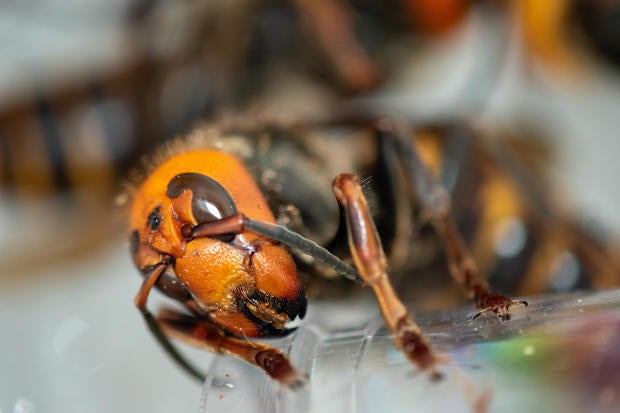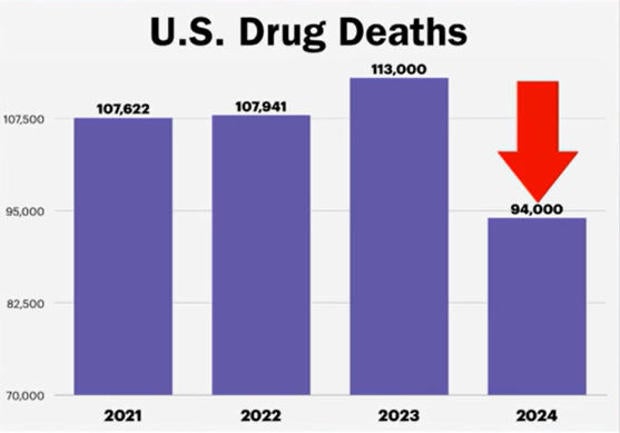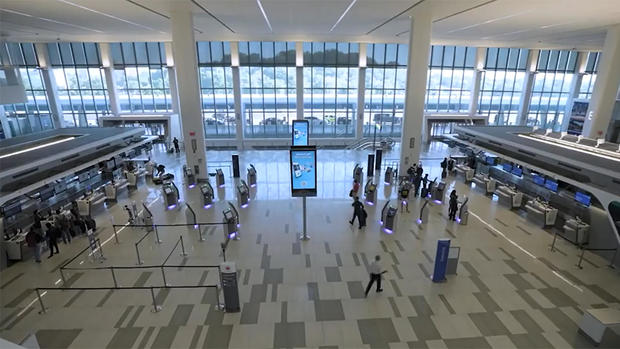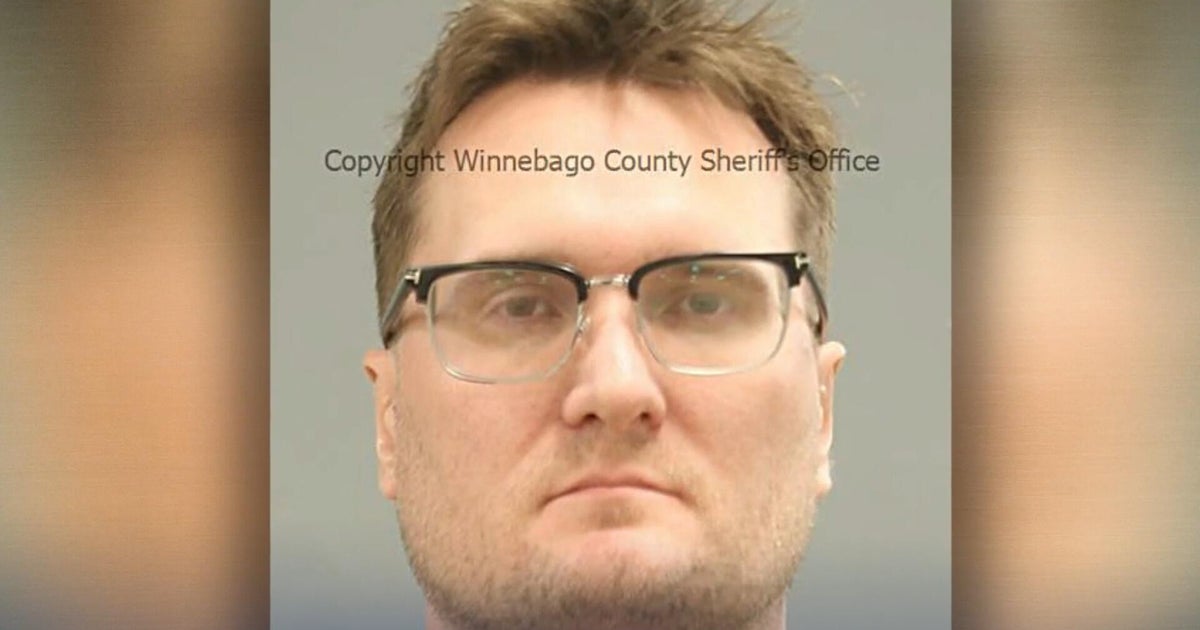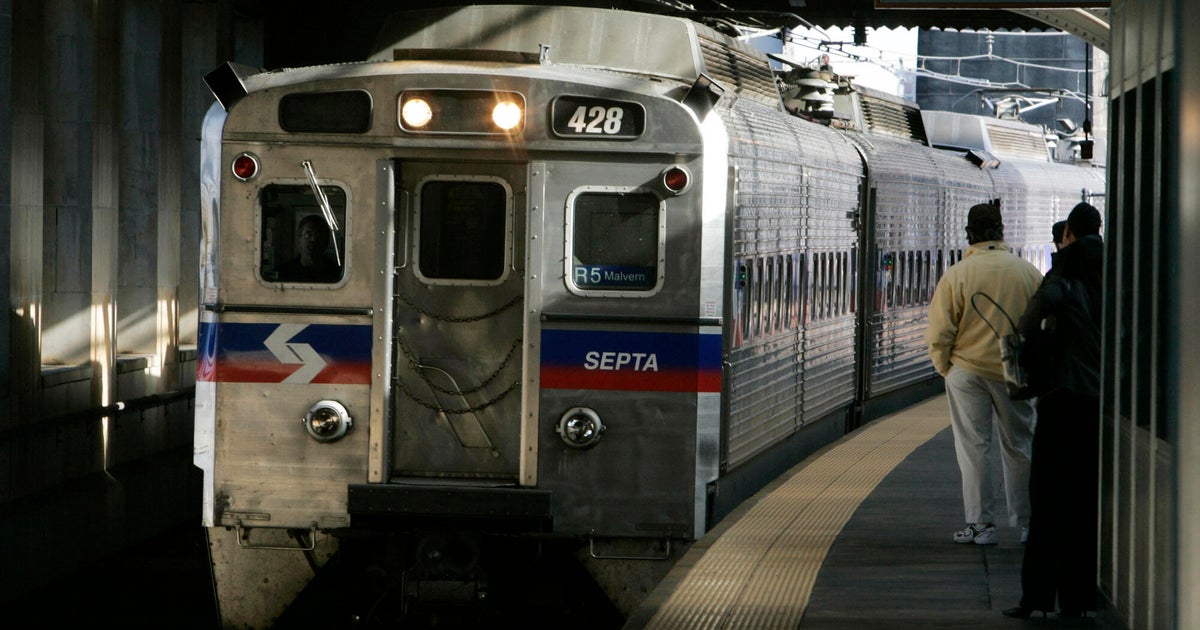Good news you may have missed in 2024
It's time for "Sunny Side Up," the good news broadcast, with your host, David Pogue!
Good morning! Well, you may remember 2024 as a year of bad news. For example … what am I doing? Why would I remind you?!?
But there was also GREAT news this year that you might have missed.
We begin with … murder hornets!
Murder hornets
These giant bugs arrived in Washington state four years ago from Asia. They can wipe out entire hives of honeybees, and even kill people.
If they were to spread, that would be bad news.
So, authorities set up traps, tip lines, and tiny tracking devices, and by December 18, entomologist Sven Spichiger announced: "Now we can officially say that eradication has been achieved, and it's a significant victory."
Score: Humanity 1, Nightmare 0.
Overdose reduction
But zero is only one good number; 20,000 is another – 20,000 Americans who didn't die of drug overdoses in 2024, compared to last year's total – a 17% decline, according to the Centers for Disease Control and Prevention.
"The really great news is that we've seen a historic decline in overdose deaths in the past year – the largest decline in overdose deaths ever recorded in history," said Magdalena Cerdá, a professor of epidemiology at the NYU Grossman School of Medicine.
So, why did this happen? "We have a lot of hypotheses," Dr. Cerdá said. "One of them is that there's been a really concerted investment in access to naloxone, which is a drug that can be used to reverse overdoses. Also, what we've seen is a shift from people injecting drugs to people smoking drugs. There's also been a decline in people just using drugs, like fentanyl, among adolescents and young adults."
Within epidemiology circles, is this a big deal? "Absolutely!" she said. "Of course, there's still more than 90,000 people who died of an overdose in the past year; that's unacceptably high."
The friendly skies once again
Remember New York's LaGuardia airport? The one with low ceilings, narrow corridors, and not enough gates for today's big planes? It was dim and dingy. It was "hailed" as the worst airport in the United States. In 2015, then-Vice President Joe Biden famously remarked, "I must be in some third world country," when talking about one of America's busiest airports.
So, in 2015, they started building a whole new airport, in stages, over and around the old one, and then demolished the original without ever shutting down the airport!
- The move to upgrade U.S. airports ("Sunday Morning")
Speaking from LaGuardia, airport critic David Pogue has his verdict: "Well, one thing's for sure: It's not dim and dingy anymore! Now, it's big, bright and airy, flooded with natural light, more efficient security, super-cool art, including a computer-controlled waterfall. And the planes are now closer to the runways, so there's less sitting on the ground."
The critics sing a different song now. They call it the best airport in America! At this point, there's only one thing left to do: Start the whole thing again, at JFK Airport!
Artificial intelligence
AI has been in the news almost daily this year – mostly about how scary it is.
What gets less coverage is how AI is predicting the weather better … adjusting traffic lights more efficiently … and diagnosing diseases more accurately.
But the biggest AI story of the year might just be AlphaFold. Its purpose is to map the shapes of proteins — infinitesimal, folded-up molecules, too small to see with a normal microscope. "For a long, long time, we've tried to figure out, 'What are the shapes of these?'" said John Jumper, director of the AlphaFold project at Google's DeepMind division. "Because if you get the wrong shape, you often get disease."
Jumper says that if we knew the shapes of the proteins that cause many of the worst diseases, we could start making drugs to fix them.
Before AlphaFold, the shape of a protein was determined through a laborious process: "Maybe a year of time, maybe $100,000 in expense to get a single answer, to get just one," Jumper said.
But AlphaFold works thousands of times faster; this year, it finished calculating the shapes of all 200 million known proteins. The scientific world went crazy!
- The Breakthrough of AlphaFold 3: Revolutionizing Biological Research (Sidecar)
- 'It will change everything': DeepMind's AI makes gigantic leap in solving protein structures (Nature)
- Why AlphaFold 3 is stirring up so much buzz in pharma (PharmaVoice)
Better yet, Google then offered its discovery to the world for free. Over 2 million researchers are already using it to tackle malaria, cancer, Parkinson's, COVID, diabetes, and much more.
Jumper said, "I am certain that we have saved or will save lives with AlphaFold. We will have medicines that we didn't have because of this technology."
This year also brought a little good news especially for John Jumper: He just won the 2024 Nobel Prize for chemistry!
Still more good news!
Well, I'm afraid that's all the time we have. We won't be able to mention the 24 states that raised their minimum wage this year …
How the U.K. shut down its last coal plant …
How you can now renew your passport online …
The 800 school districts now using electric school buses, for cleaner air and fewer child asthma cases …
The first successful return from the dark side of the moon …
How the hole in the ozone layer is healing faster than anyone expected ...
Or the postal service's new mail trucks. They may have a little bit of a platypus vibe, but they finally offer airbags, air conditioning, side doors for unloading, anti-collision systems – and most of them will be electric.
Have a joyous new year, and remember: Bad news breaks suddenly, but good news happens everywhere, all the time. Good morning, everyone!
For more info:
- Washington State Department of Agriculture
- Magdalena Cerdá, professor of epidemiology, Department of Population Health, NYU Grossman School of Medicine
- AlphaFold (Google DeepMind)
Story produced by Annie Iezzi. Editor: Emanuele Secci.
